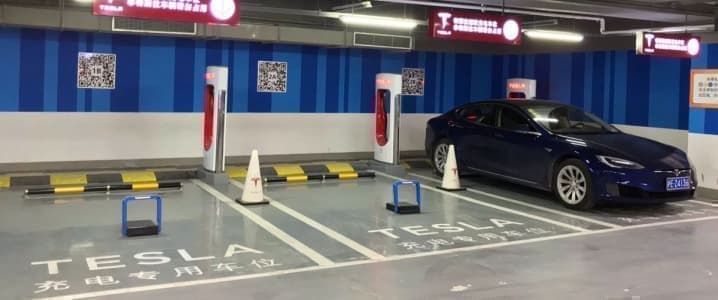An economic slowdown in many parts of the world and the phase-out of EV subsidies in the United States have led to lower EV sales this year, a survey by the Columbia University’s Center on Global Energy Policy has shown.
The survey looked into more than a dozen EV penetration forecasts and found that two-thirds of these feature lower EV sales projections both for the short and the long term, author Marianne Kah noted. What’s more, the forecasts were less optimistic about battery cost declines, too.
Battery costs are one of the keys to mainstream EV adoption, so EV penetration forecasts prioritize the issue, forecasting when said costs will fall to $100 per kWh from the current average of $175-200 per kWh, that will make EVs directly competitive to ICE vehicles without government subsidies.
While in the 2018 survey by Columbia’s CGEP some forecasts expected the $100/kWh mark to be reached sometime between 2020 and 2022, this year’s survey revealed that the most optimistic forecast projects this to happen in 2023 at the earliest.
Another difference Kah noted between 2018 and 2019 EV forecasts concerned the percentage range that forecasters gave for EVs as a portion of the global fleet in the long term. In 2018, the survey author said, projections about EVs as a percentage of total cars ranged between 15 and 60 percent. In 2019, this range widened to between 10 and 70 percent, which makes the future of EVs even less certain.
The results of the survey are not particularly encouraging. Even less encouraging is the forecast that oil demand for passenger vehicles may continue to rise over the next five years. Then again, some forecasts see it plateauing in the period before beginning to decline after 2025.
Yet, Kah noted, even if oil demand for motor fuel declines after 2025, this does not mean that total oil demand will decline “because of the growth expected in sectors that are more challenging to electrify or find substitutes (e.g., truck, air, marine, petrochemicals).”
After 2030, however, oil demand will likely begin to decline steadily, especially if all the climate change-related political talk from today turns into actual legislation.
By Irina Slav for Oilprice.com
More Top Reads From Oilprice.com:
- Oil Prices Jump On Bullish EIA Report
- Is Wall Street Turning Its Back On Fossil Fuels?
- From Boom To Bust: Permian Shale Towns Face Exodus

















The real threat to the future of EVs is that there will be neither a post-oil era nor a peak oil demand during the 21st century and far beyond. Oil will continue to reign supreme not only in global transport but also in petrochemicals, aviation and agriculture without which it will never be able to feed 7.5 billion of the world population.
It is very doubtful that an alternative as versatile and practicable as oil, particularly in transport, could totally replace oil in the next 100 years and beyond. Moreover, technology has enabled the ICEs to outperform EVs in range, efficiency, price and performance and also become more environmentally-friendlier.
Dr Mamdouh G Salameh
International Oil Economist
Visiting Professor of Energy Economics at ESCP Europe Business School, London
Unit volume of evs over 200 mile range is through the roof.
You guys though really should be concerned with electric busses they are 5-9 less barrels a day each vs. 3 barrels a month for a high miler like my self. Ev busses are now economic just on brake repair jobs, let alone pollution abatement. Their shipping like mad!
Oh, the old my ev burn coal?
No... almost all owners set to charge at night when grid has plenty surplus juice. So much i'm virtually guaranteed to be all nuke. As it's right down the road. And yeah, it ties to local grid I've seen then on bike rides. There's another nuke a ways away so night time we all just glow!